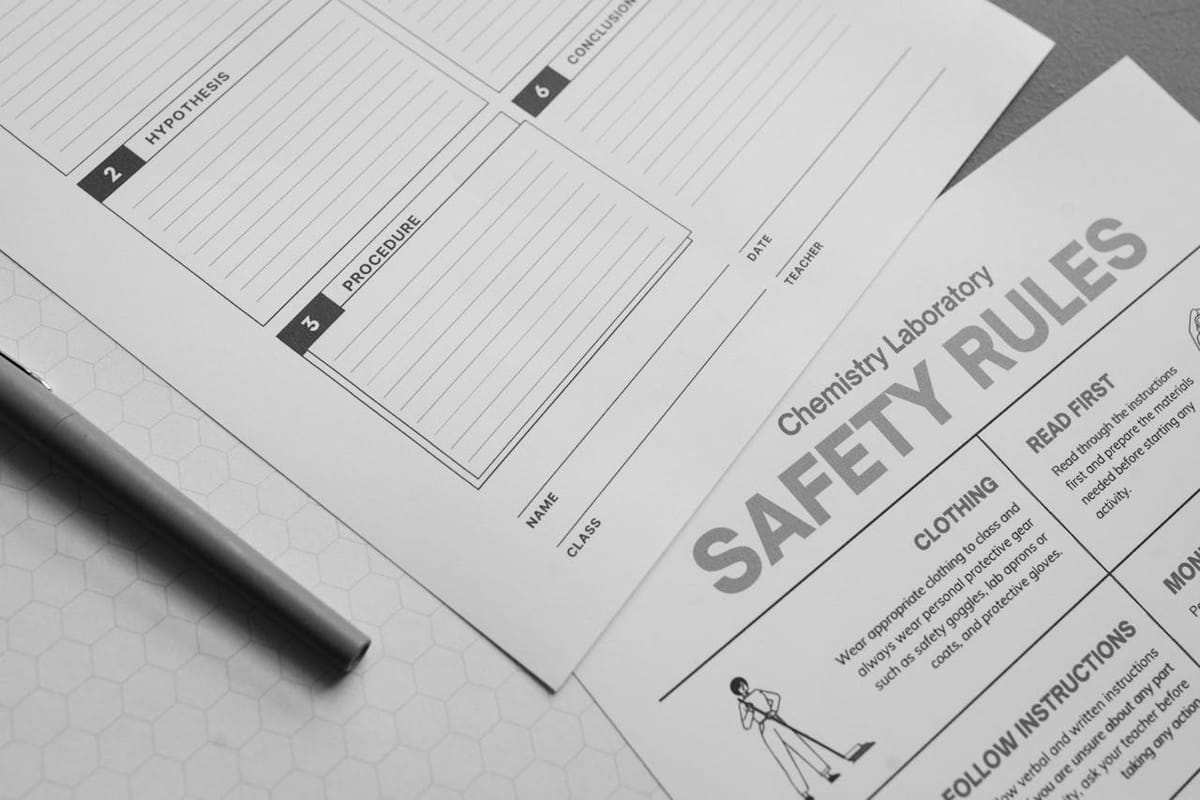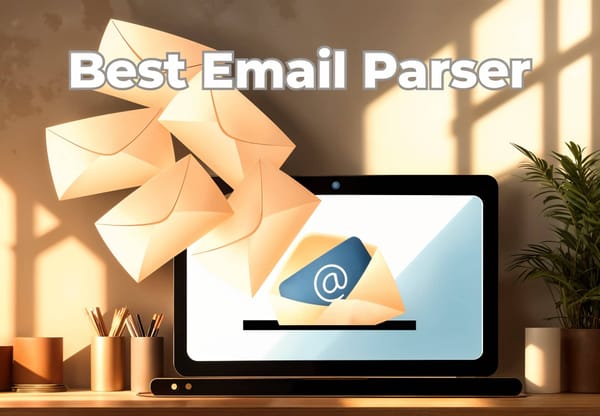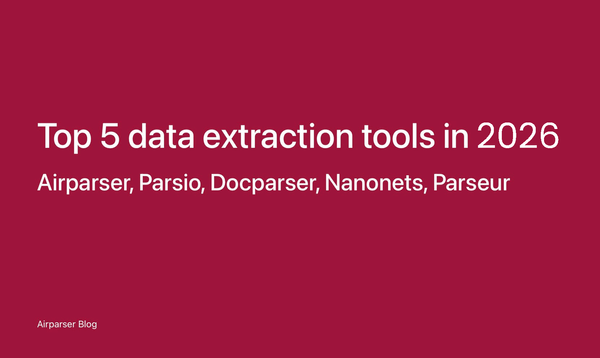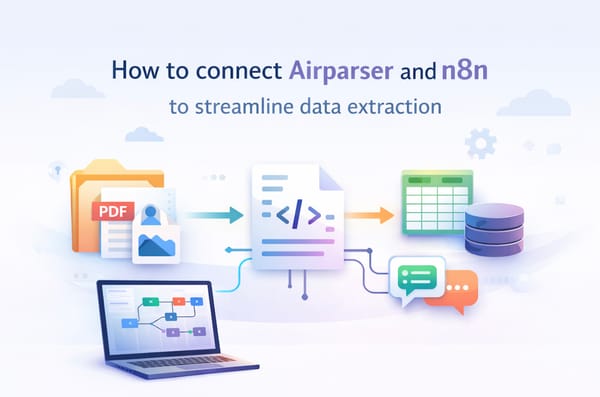Transforming Healthcare with Automated Document Extraction

The healthcare industry generates large amounts of data every day. From patient medical records to insurance claims and clinical trial data, managing and extracting relevant information from these documents is crucial for efficient healthcare delivery. Traditionally, this task has been time-consuming and prone to human error. However, with GPT-powered engines like Airparser, automated document extraction is revolutionizing how healthcare organizations handle their data.
The Role of GPT-Powered Engines in Healthcare Document Extraction
GPT, or Generative Pre-trained Transformer, is a type of artificial intelligence (AI) that excels in understanding and generating human language. GPT-powered engines, such as those used by Airparser, can read, understand, and extract information from large volumes of text across different document formats. Some of these include PDFs, emails, invoices, images, and more. These engines are trained on diverse datasets and can identify patterns and contextual clues, enabling them to accurately process complex documents.
GPT-powered engines streamline the document extraction process by automating the reading and interpretation of documents. This automation reduces the workload on healthcare professionals, allowing them to focus more on patient care rather than administrative tasks. These engines are capable of extracting relevant information and categorizing data across different languages. By doing so, they minimize errors associated with manual data entry and ensure that information is processed consistently and accurately.
Types of Healthcare Documents Processed
1. Medical Records
Medical records encompass a wide range of documents, including patient histories, treatment plans, and lab results. GPT-powered engines can extract key information from these records, such as patient demographics, diagnosis codes, and treatment timelines. This ensures that all relevant data is readily available for healthcare providers, facilitating better clinical decisions and continuity of care.
2. Insurance Claims and Billing Documents
Processing insurance claims and billing documents can be a daunting task due to the complexity and volume of paperwork involved. Automated document extraction simplifies this process by quickly identifying and extracting necessary information, such as patient details, service codes, and billing amounts. This leads to faster claim processing and reduces the likelihood of errors that could result in claim denials or delays.
3. Prescriptions and Pharmacy Records
Accurate management of prescriptions and pharmacy records is vital for patient safety. GPT-powered engines can extract prescription details, dosage instructions, and pharmacy transaction records, ensuring that patients receive the correct medications. This automation also helps pharmacists and healthcare providers track medication histories and identify potential drug interactions.
4. Clinical Trial Data and Research Documents
Clinical trials generate extensive documentation, including study protocols, patient consent forms, and research findings. Automated document extraction helps researchers quickly sift through these documents, extracting relevant data points and organizing information for analysis. This accelerates the research process and supports the advancement of medical knowledge.
5. Patient Consent Forms and Legal Documents
Patient consent forms and legal documents are essential for compliance with regulations and ensuring patient rights. GPT-powered engines can accurately extract and categorize information from these forms, ensuring that all necessary consents are properly documented and accessible. This enhances legal compliance and protects both patients and healthcare providers.
Automation Opportunities in Healthcare
1. Streamlining Patient Data Entry and Management
Traditionally, entering patient information manually into electronic health records (EHRs) is time-consuming and prone to errors. Airparser can significantly streamline this process by automatically extracting patient information from various documents such as intake forms, medical histories, and lab reports. This ensures that patient records are accurate and up-to-date without the need for extensive manual input.
2. Automating Insurance Claim Processing and Billing
By quickly and accurately extracting necessary information from claims and billing documents, GPT-powered engines reduce the time and effort required to process claims. This leads to faster reimbursements and reduces administrative costs for healthcare providers. Airparser can automate the extraction of essential information from insurance claims and billing documents, such as patient details, treatment codes, and billing amounts.
3. Improving Accuracy and Efficiency in Medical Research Data Extraction
Medical research involves analyzing large sets of data from clinical trials, research papers, and patient records. Extracting and organizing this data manually is a cumbersome process and can result in inaccuracies. Airparser can automate the extraction of research data, ensuring that researchers have quick and accurate access to the information they need. This automation speeds up the research process, allowing for more timely discoveries and innovations in healthcare.
Security and Privacy of Patient Data with Airparser
1. Data Usage and Compliance with GDPR
Airparser uses customer data exclusively to provide its service, and not for any other purpose. The AI or GPT models are not trained with customer data, which in turn ensures privacy and security. To protect data, Airparser has implemented robust security protocols. This includes the use of 256-bit AES encryption.Furthermore, users can set document retention policies that automatically delete parsed document data from the system. Moreover, Airparser processes data in compliance with the General Data Protection Regulation (GDPR).
2. Best Practices for Maintaining Patient Confidentiality and Data Integrity
Airparser uses 256-bit AES encryption to secure data at rest and stores data within encrypted AWS S3 buckets, ensuring that stored information remains protected against unauthorized access. This level of encryption is recognized as highly secure and is widely used in the industry to safeguard sensitive data. All web application transmissions are secured with HTTPS and digital certificates. Data in transit is encrypted with TLS 1.2 for extra security.
Furthermore, Airparser relies on trusted cloud service providers. These providers offer robust security and compliance controls for both data center physical security and cloud infrastructure. Airparser allows businesses to customize data retention and deletion periods to fit your company's business, legal, or regulatory needs. Businesses can set these periods from 1 to 180 days, giving control over how long data is kept before it's deleted.
Conclusion
Automated document extraction powered by GPT engines like Airparser is changing the healthcare industry. By streamlining the processing of various healthcare documents, Airparser enhances efficiency, reduces errors, and improves patient care. As healthcare organizations continue to adopt these advanced solutions, they will benefit from faster administrative processes, better data management, and enhanced compliance with security regulations.





